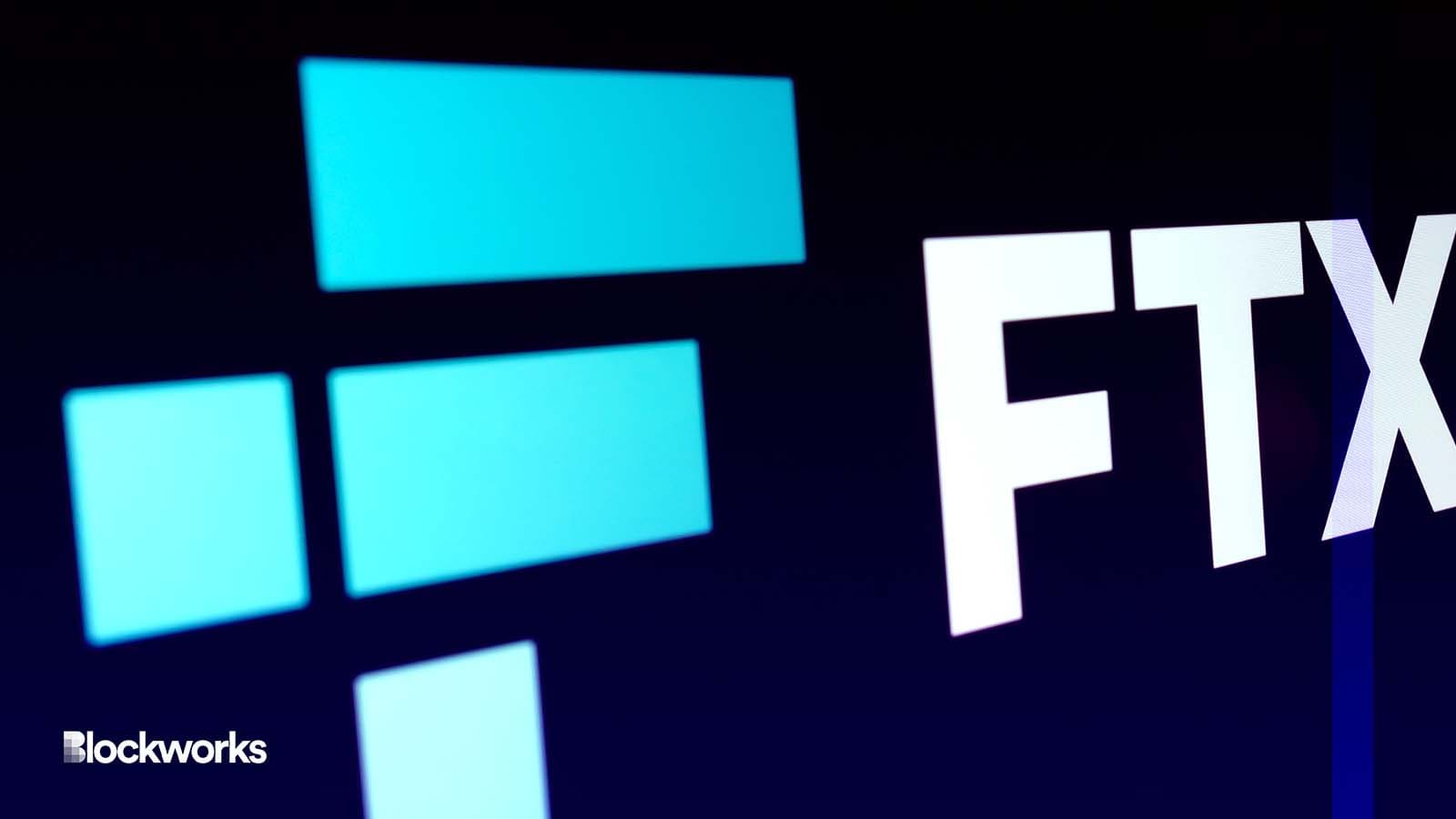Goldman Sachs: We Are Not an FTX Creditor
The FTX creditor matrix includes a number of crypto firms, airlines, some of the world’s largest tech firms — even media companies

mundissima/Shutterstock.com modified by Blockworks
Documents filed Wednesday in Delaware’s US Bankruptcy Court list thousands of potential FTX creditors, though lawyers said the names within the documents are not necessarily significantly tied to the company.
One large bank in particular is looking to distance itself from the exchange.
The 116-page filing, called “Verification of Creditor Matrix” includes the names of Goldman Sachs, JPMorgan Chase, HSBC, BNY Mellon, and other household names in financial services.
It also comprises a number of crypto firms, airlines, some of the world’s largest tech firms — even media companies.
While industry watchers and large media outlets are anxious to find out the entities to which FTX owes money, the document filed Wednesday does not specify, lawyers said.
A Goldman Sachs spokesperson told Blockworks in an email the bank is not an FTX creditor.
“This type of creditor matrix is prepared by the debtors for the purpose of providing notice to interested parties in a bankruptcy proceeding and is not necessarily evidence of a creditor relationship,” the representative added.
A spokesperson for JPMorgan Chase declined to comment.
HSBC and BNY Mellon did not immediately return requests for comment.
Dov Kleiner, a partner at law firm Kleinberg Kaplan, said the creditor matrix is generally pulled from the debtor’s books and records and can include lots of different parties.
A creditor matrix includes lending counterparties and account holders, as well as all other known creditors. But some of the companies and entities listed could be vendors or landlords who have already been paid, or known litigation parties.
“The idea is to include anyone who might have a claim so that the notice of the filing is as broad as possible,” Kleiner added. “Ultimately, the debtors are looking to have their claims resolved finally in the bankruptcy, so they will want to cover everyone they can.”
A professional who represents debtors, who spoke under the condition of anonymity, added that the debtor — as part of a creditor matrix — offers a list of everyone it did any business with over the last several years.
“It could be anything,” the person said. “It is not necessarily meaningful that a particular entity is on the list.”
Kleiner said it is understandable why a creditor matrix is given more attention in a high-profile case like this.
FTX filed for Chapter 11 bankruptcy in the District Court of Delaware in November. The company crashed after a $6 billion bank run fueled by rumors of insolvency and allegations of commingling user funds with sister trading firm Alameda Research.
Crypto companies have struggled from ripple effects, as BlockFi filed for bankruptcy a few weeks after FTX after suspending withdrawals amid the FTX developments.
Lawyers representing FTX and affiliates said in a bankruptcy motion in November that as many as one million creditors could be named in the suit. A Delaware bankruptcy judge said earlier this month a list of those creditors could remain sealed for now.
What will be more telling than the creditor matrix, Kleiner said, will be when parties begin filing proofs of claim and when FTX, subsequently, provides a claims estimate.
“Goldman [Sachs] is just trying to reassure people that the fact that it shows up on the FTX creditor matrix does not mean that Goldman’s balance sheet is exposed to FTX losses,” he said.
Get the news in your inbox. Explore Blockworks newsletters:
- The Breakdown: Decoding crypto and the markets. Daily.
- 0xResearch: Alpha in your inbox. Think like an analyst.






